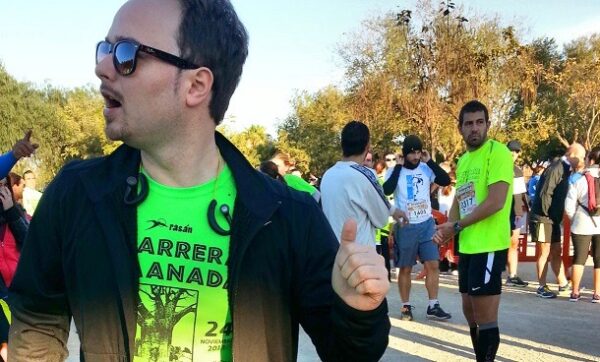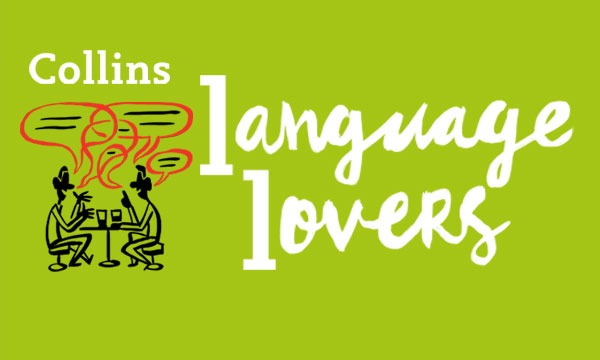The following is taken from fluentin3months.com, by Benny Lewis, and is part of HarperCollins’ 31 Days of Inspiration (#31daysuk). The book, Fluent in 3 Months, is available at 31% discount when you use promo code 31DAYS on collins.co.uk.
Every year around January 1st, my inbox gets filled up with language learners excitedly declaring to me their New Year’s resolutions. They tell me, this is the year I will learn French! Learn Spanish! Learn Chinese!
To all you resolved language learners out there, hoping to make 2015 the year you finally reach your language-learning goals, I’d like to offer a bit of guidance in making your New Year’s resolutions and actually keeping them.
To do this, I’ll share my own goals for 2015 with you – both those I have for my languages, but also my other goals as well – and I’ll tell you exactly how I plan to achieve them. The strategy is the same for both.
“BAD” NEW YEAR’S RESOLUTIONS TO AVOID
Generally, most people’s New Year’s resolutions tend to revolve around the same themes. Here are some examples, that are all technically things that I want to do in 2015:
Read more
Exercise more
Eat healthier
Learn to swing dance
Perfect my French
Speak Chinese better
These are all bad goals to have, mainly because each one lacks specificity. This is a general theme with New Year’s Resolutions, and it’s why I don’t even use the term myself, and always prefer to model my life improvements around goals.
I’ve talked about this before, but it bears repeating: To reach your goals, you have to actually have a goal. You need an end-point that you can visualize and know for sure whether or not you’re on track, and when you’ve achieved it.
If your goal is to improve your French, how will you know when you’re done? If you want to read more, how will you know if you’re on track? Have you reached your goal if you read for 1 day? For 30 days? How can you gauge your progress?
The trick to making a New Year’s resolution that actually sticks to is to visualize your resolutions in concrete terms. Here are some examples.
MY 2015 NEW YEAR’S GOALS
To show you what I mean, here are several of my own genuine goals for 2015, all of which are much more specific versions of the vague “resolutions” above:
Read 60 books by November
Run a half marathon by March
Run a full marathon by November
Restrict pasta, chocolate and sodas to 1 day per week (Saturday only)
Be ready to swing dance confidently as a very solid beginner by November
Take a mock C2 (mastery level) exam in French by July
Reach B2 (fluency) in Mandarin by November

TIP 1: CREATE GOALS THAT ARE SPECIFIC AND MEASURABLE
One reason I like the word “goal” over resolution is that it has a idea of measurement behind it. A goal is something that can be reached – something I can check off my list and know exactly when I’ve reached it.
Note how each of the goals I’ve chosen is both specific and measurable. There’s no way to be unclear about whether or not I’ve read 60 books. I’ve either run a half marathon or I haven’t. But “read more” and “exercise more” are nebulous and quite useless because of this.
You will also notice that (apart from the weekly eating restriction) all of my goals have a specific deadline. December tends to involve travel and time with family, so if I am taking on a longer-term goal (as you can imagine I prefer three month goals…) then it ends in November at the latest.

TIP 2: ALLOW YOURSELF TO FEEL A SENSE OF ACCOMPLISHMENT AND PROGRESS
Each of the goals I’ve created means something real to me. For example, when I say I want to learn the basics of swing dancing, I say this because I’ll be attending a wedding in November and I hope to be able to swing dance at the reception.
Do I expect to be amazing at it? Do I want to compete at world-competition levels? No. Not for now at least. I just expect to be able to dance well in a casual setting. This is a realistic goal, especially since I will be living in multiple places and can only realistically get a few classes per month.
Maybe for 2016 or 2017 I can have more hefty goals like training for dance competitions, but realistically dancing at a specific wedding is all I want to care about for now, and that will make further improvement much easier.
In my running goals, I’ve also included two separate benchmarks. First a half-marathon, then a marathon. I’ve broken this up into separate milestones so that I can feel progress in the smaller wins, rather than focusing only on the biggest possible endpoint.
If you’re a member of my email list, you know that I ended 2014 by taking a mock C1 exam with my French teacher, and that I’ve decided to make fluency in Chinese a priority for this year.
I’ve been studying French for years and this goal is a single point on a much longer road.
Imagine if, when I started studying each language years ago, my goal was just to “learn French.” I still wouldn’t be there! Instead every language project I’ve ever had has been based on milestones.

TIP 3: KNOW YOUR LIMITATIONS AND DON’T LET SETBACKS DERAIL YOUR MOMENTUM
One of my goals, for example, is to eat healthier, but I’ve chosen to measure my progress here by allotting one day a week as “cheat day”. For me, Saturday is cheat day. And I know that if I eat a gnocchi or a chocolate lava cake on any other day except cheat day, then I haven’t met my goal for that week.
But when that happens, I don’t just throw the whole plan out the window, because cheat day comes around every single week. Every week I’ll still have my Saturday cheat day looming over me, holding me accountable, giving me another chance to succeed.
Don’t expect yourself to be a super hero. Don’t give yourself unrealistic expectations like “stop eating chocolate”, because when you inevitably give in to temptation, you’re likely to give up your goal entirely because you’ve already “failed.”
My goal of “running a half marathon” might also be an unrealistic goal for me if I was a total newbie at running. Pretty much every successful marathon runner I’ve come across has had smaller milestones.
For instance, the picture at the top of the post is me getting ready to run my first ever 5K last year in Valencia. It took me two whole months to train myself to be able to run that much more modest distance, and I was exhausted at the end of it!
I’ve since pushed my boundaries up to running 10k, then running the same distance and feeling great afterwards and continue to improve my endurance and speed, so that a half-marathon within 3 months is realistic.
When you make your goals measurable, you can recognize your progress rather than your failures, and use that to keep up your momentum. Celebrate all the weeks that you make progress. Focus on your wins!
USE TOOLS TO TRACK YOUR PROGRESS
The tools you use to recognize your progress will make a huge difference in your success. Having looming reminders, social competitions and other psychological motivators help a lot. Here are my favourites!
Language goals
My current favourite social tool for language learning is Memrise because I find the daily/weekly/monthly scoreboard to be an excellent motivator. This tool is great if you have a specific number of words you want to memorize, with of course the excellent mnemonics that help you remember. Follow me here.
Overall To-Dos
I use Coach.me (formally Lift) for my daily to-dos. I like this tool because I can search for specific daily tasks that may be key to my longer term goal, that an entire community has grown around, and I can tick each daily task from my smartphone.
You can follow me here or check out the plan for language learners I made for that site here. I have public goals I don’t mind others seeing for social feedback, and can make other goals private.
Pretty much every goal you can imagine has a community around it on that site!
Reading goals
Goodreads is by far the best community for sharing reading goals, with the most in-depth reviews of books. Once you track enough books read on the site, it starts to give you exceptionally good recommendations based on your interests. People like your updates (you even update progress within books and how far you are in each one you are reading) and can send you personal recommendations.
I keep my Goodreads up to date on what I’m reading. Follow my profile here!
Exercise goals
I use Endomondo to track my jogs, and help me plan how much I should run to realistically reach my goal, based on my past progress. Then when I run, I have my smartphone with me and my speed and distance are tracked automatically through GPS updates.
HERE ARE TEAM FI3M’S 2015 GOALS – WHAT ARE YOURS?
This January, I still want my inbox to be filled with language learners sharing their goals with me, but this year I’d like to hear more about specifically what level you’d like to achieve and why, and how you plan to get there.
To give you even more inspiration, here are the New Year’s resolutions of some other members of Team FI3M. Share your own in the comments!

Balint
Read 100 books
Reach C1 level in German and pass the exam
Reach solid B2 conversation level in Spanish
Go to the most Northestern point of Europe by car
Simplify my life a bit more every week
Finish another Ironman (if my back allows)
Joseph
Read 50 books
Do physical activity at least 3 times per week
Double the amount of money that I put into savings

Lauren
Run a 5k
Cook my way through Alton Brown’s repertoire (at least 20 recipes)
Learn the basics of swing dancing
Reach B2 level in Esperanto
Reach B1 level in Russian
Reach A2 level in French

Kittichai
Learn at least 1,800 Joyo Kanji
Read 10 books in Japanese
Exercise at least for 30 minutes, 3 times a week.
Wake up before 6:30 am
Go to the beach!

David
Paint the dining room (we’re aiming to have this finished on Jan 1!)
Paint & new carpet in the guest bedroom
Paint & new carpet in my office
Fully clear my wife’s new allotment & eat vegetables grown on it.
Spend at least one weekend in complete silence
Read an average of 1 book per week (52 books)
Now it’s your turn! What are your goals for 2015? How can you adjust your goals to be measurable, or to create milestones to measure your progress?
Benny will be back with more advice and guidance every week this month, so make sure to check in regularly.
Benny Lewis is the bestselling author of Fluent in 3 Months, available on collins.co.uk at 31% discount when you use promo code 31DAYS*.
*Offer valid until 31st January 2015



